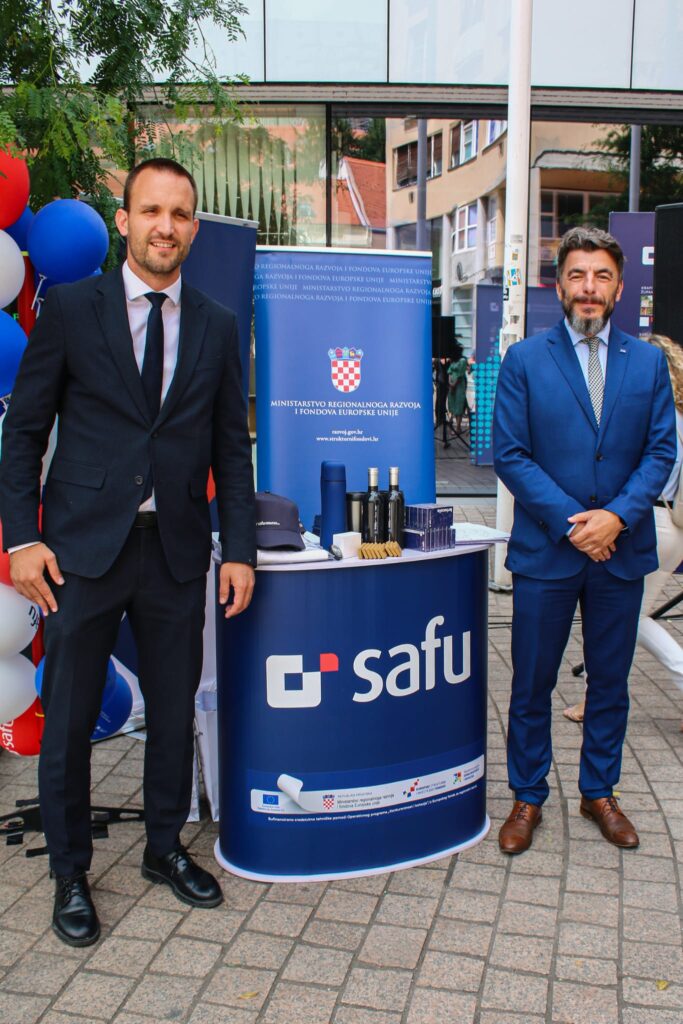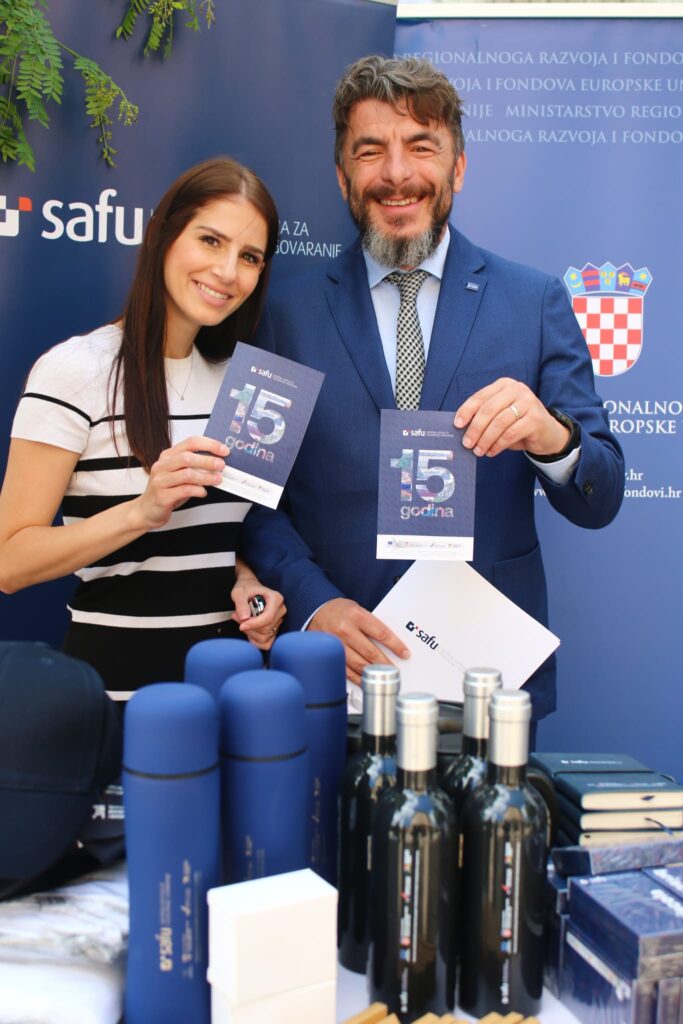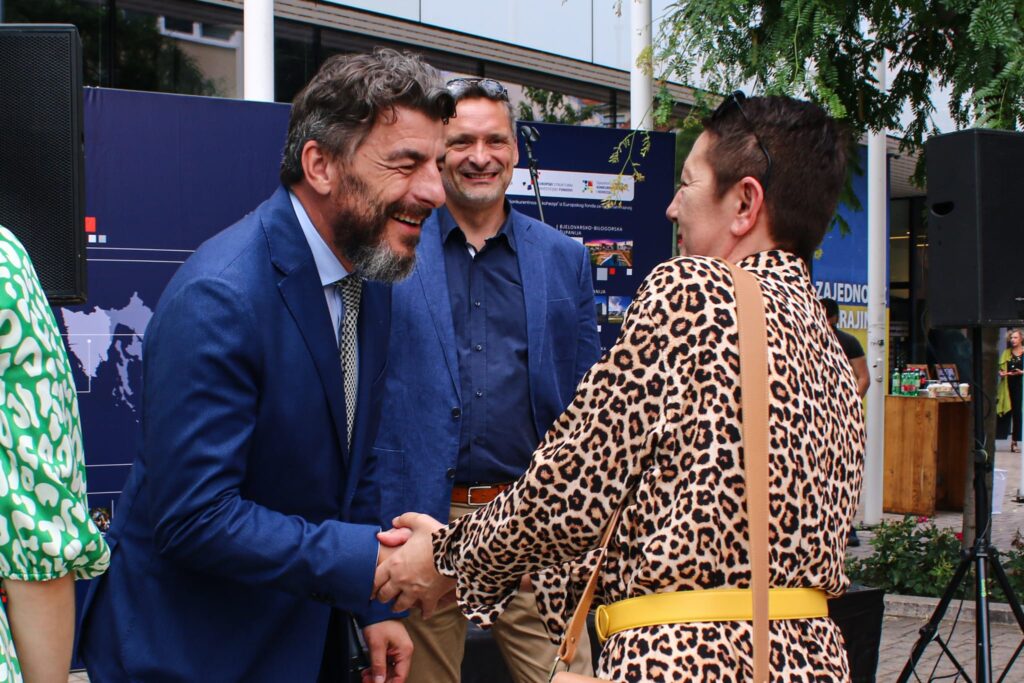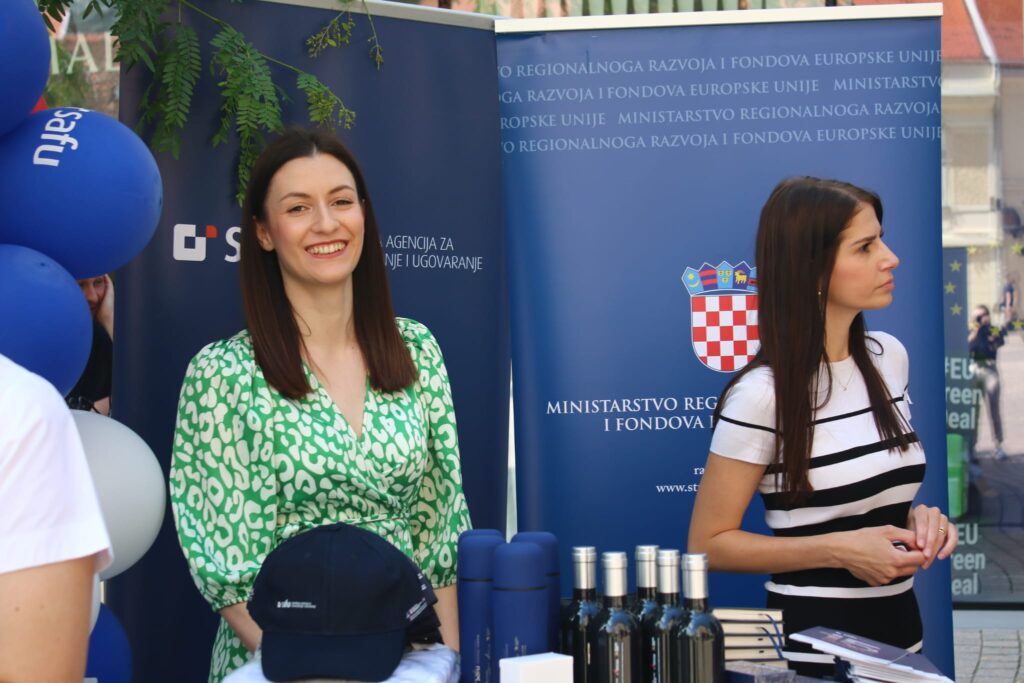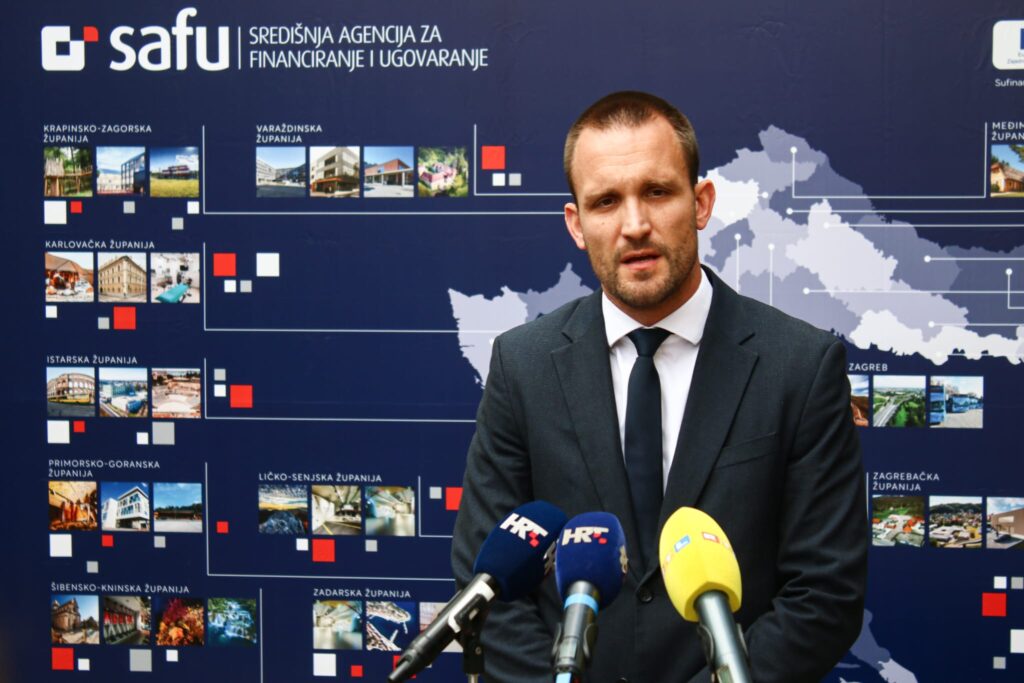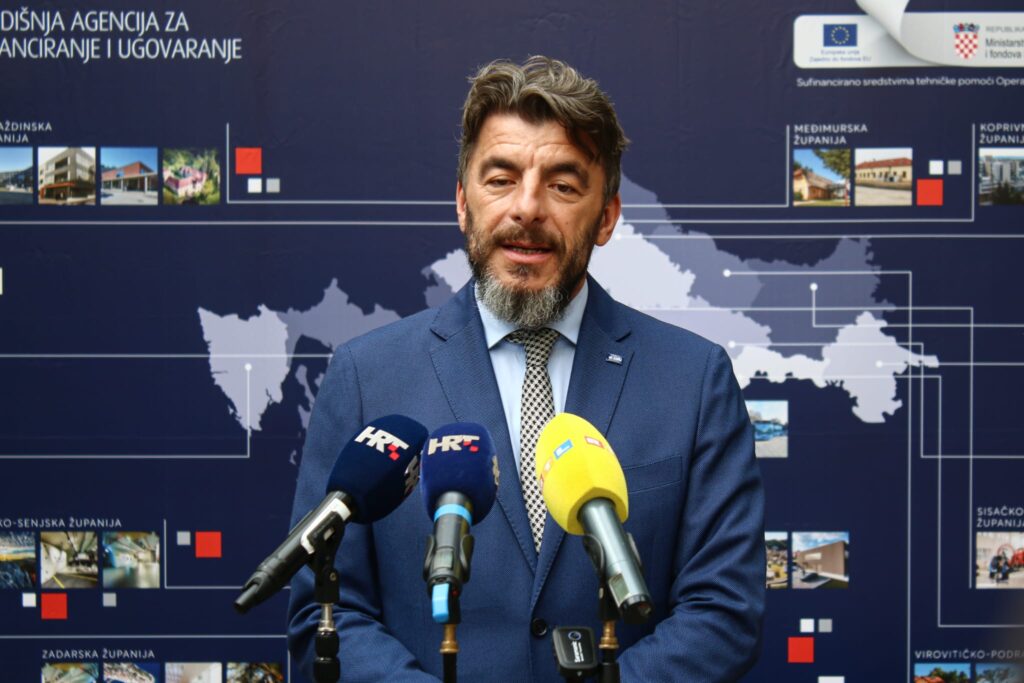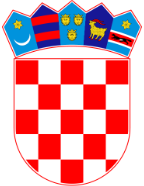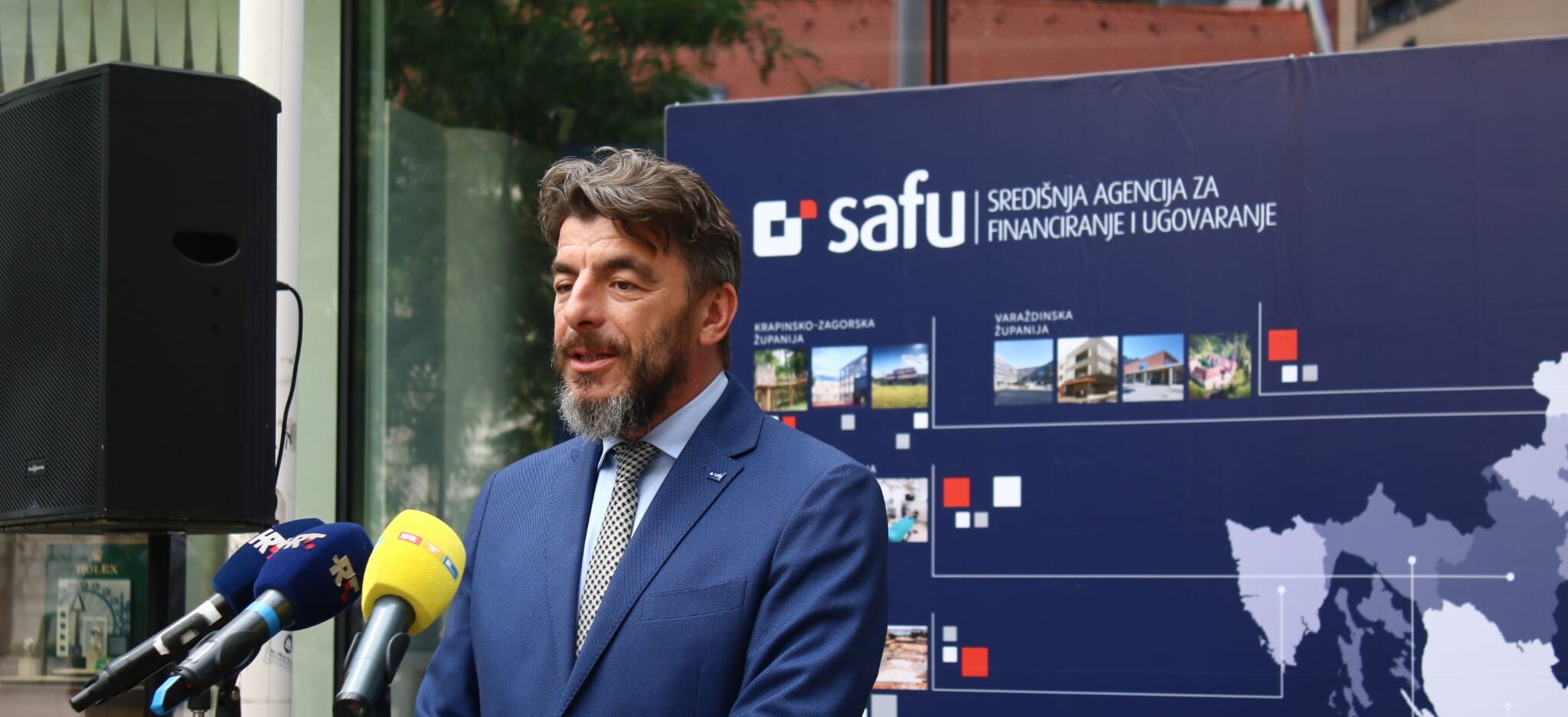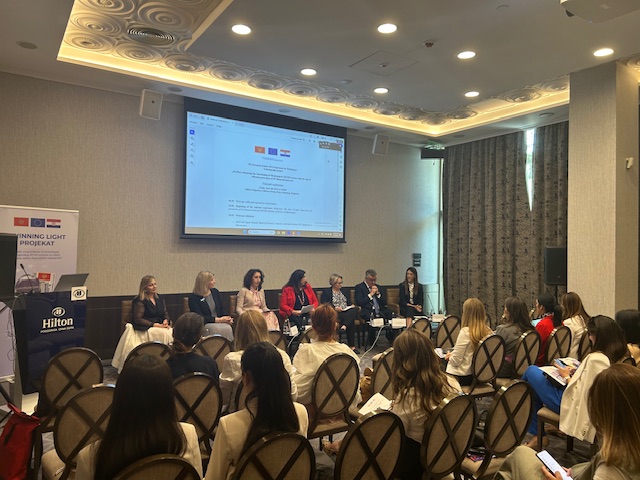In the year in which Croatia marks its ten years of membership in the European Union, the Central Finance and Contracting Agency (CFCA) is celebrating its 15 years of work. During this period, the CFCA has contracted over 3,000 projects worth over 7.2 billion euros.
On this occasion, some of the EU projects without which Croatia would be unimaginable today were presented to the citizens in the European Square. The Minister of Regional Development and EU Funds, Šime Erlić, congratulated the CFCA on its 15 years of existence and work, and emphasized that the CFCA is the key agency dealing with EU funds policy and that there is no one involved in European projects in Croatia who has not cooperated with the CFCA.
“Our intention is to further strengthen and empower the CFCA because there are more EU funds available now than ever before, and it is very important to have educated, trained, and qualified people who will know how to manage those funds and ensure transparent spending of EU funds,” said Minister Erlić.
He also emphasized that in ten years of membership in the EU, when taking into account the contributions and disbursements from the European budget, Croatia is in a surplus of 10.7 billion euros.
When asked by the media about his personal favourite European project, Minister Erlić, as he says, gave a subjective answer, not as a minister, but as a person who has worked on European projects: “These are certainly the projects I worked on in Zadar, the projects of restoration and revitalization of cultural heritage – Providur’s and Rector’s Palace, which have an emotional dimension for me.” He also mentioned that over 12,500 exceptionally valuable projects have been implemented, which Croatia can be proud of.
The director of the CFCA, Dragan Jelić, stated that projects are not just letters and numbers on paper, but that they greatly improve the quality of life for all citizens of Croatia.
“Try to imagine Makarska without the Skywalk, Pula without the Small Roman Theatre, Zagreb without one of our largest projects, the Zagreb roundabout, Novska without the gaming industry, and of course, the southern part of Croatia without the Dubrovnik Airport and the Pelješac Bridge,” Jelić added. According to him, the Pelješac Bridge, as the most valuable project implemented by the CFCA, has not only facilitated travel, but also territorially connected and linked the Republic of Croatia into one entity. He also mentioned that Croatia’s ten years of membership in the EU are approaching soon, and that within the framework of Operational Programme “Competitiveness and Cohesion” 2014-2020 the CFCA has contracted more than 1200 projects worth over six billion euros, of which over five billion euros in grants were invested in counties, cities, and municipalities, contributing to regional development and improving the image of Croatia.
“The most has been invested in infrastructure – 2.2 billion euros, but it is important to note that over 500 million euros were invested in science, nearly 500 million euros in social projects, the same amount in culture, while almost 400 million euros were invested in healthcare,” said Jelić.
He added that, thanks to the Government of the Republic of Croatia, in the new financial period through the National Recovery and Resilience Plan and a series of operational programmes, Croatia has over 25 billion euros at its disposal, and that the CFCA will be responsible for monitoring the implementation of certain projects.
“Therefore, many more valuable and interesting projects are expected in the future, almost two thousand projects whose value could reach over 5.1 billion euros,” Jelić concluded.
